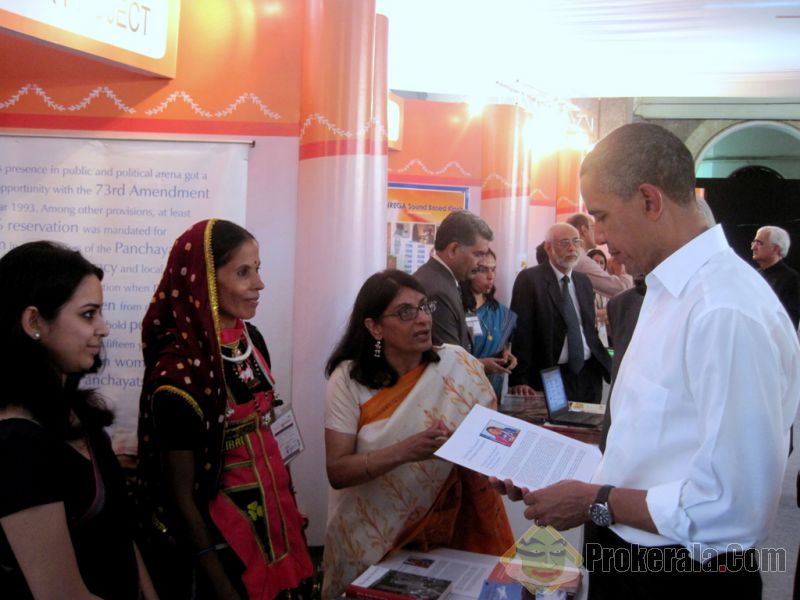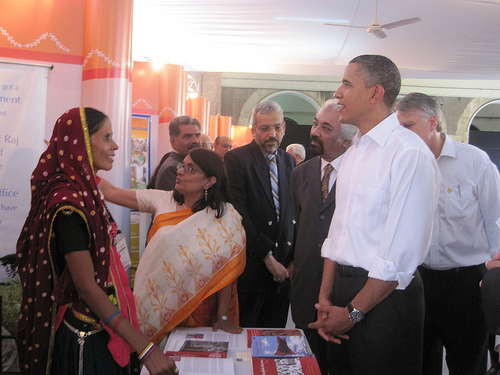The first time US President Barack Obama visited India, he actually had an itinerary that counted each minute and he was meeting people for 2 – 3 seconds so that the long list of ministers, well-wishers and fans could be done with.


There he was at a five star of Delhi (Capital of India) where the Civil Society Organizations were invited to put up a stall and showcase their work. Sharmi Bai was standing at one of the stalls having a vague idea of who the person to whom the whole world wants to meet. He only had a minute to spend at each stall and then moved onto the next.
The moment he reaches Sharmi Bai’s stall, he pauses and despite the totally alien language in which Sharmi Bai was speaking, kept listening to her. The interpreter was called and Mr. Obama couldn’t help but spent 20 minutes in conversation with Sharmi Bai.


In an interview, Sharmi Bai recalls how she had to battle the court case when she was elected as the Sarpanch of Nichlagarh in 2010. There were miscreants who appealed for the withdrawal of her candidature stating that she has four kids to take care of and wouldn’t be able to take over the role of Sarpanch responsibly.
Battling all the odds Sharmi Bai still fought and won over other 5 candidates (including 2 males and 3 females) with a margin of 476 votes.
Sharmi Bai was working as the member of Panchayat since 2005 and so, had a fair idea of how it functions. The moment she got elected, Sharmi Bai filed an application under the Dantewada Pariyojana for the construction of check dams, drains and installment of hand pumps in her panchayat. With continuous efforts, the application got passed and the work resumed. Since then, the water level of Nichlagrah has increased impressively and the farmers now have more ways of utilizing water for farming.
Sanitation and Hygiene was another concern for Sharmi Bai, specifically for the tribal population living on the top of the hills of Nichlagarh. She also worked towards sensitizing the tribals towards not getting the wet wood from the jungle as it gets wasted and was damaging the nearby forest area.
Sharmi Bai has always believed in a solution based approach and hence, she has been after the authorities to work for the betterment of the tribal population.
She has affirm belief that women can do a lot to save environment and water conservation as they are the ones who understand the situation better and manages all the water related chores of the house.
Though her position is replaced but she still remains the role model for all the women in her community and continues to be an active village leader in its true sense.
Click here to download the Sharmi Bai Case Study
Looking forward to reading your blogs, you can mail us your entries at WriteWithUs@csrindia.org, or upload them at Write With Us.
Donation for Centre for Social Research to Join our effort in rehabilitating Domestic Violence
Discuss this article on Facebook




